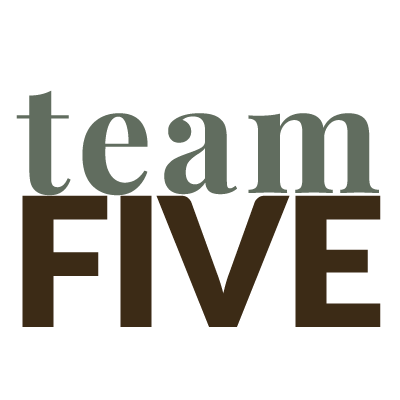In January of 2022, we changed our pricing structure at Team Five. Of course, there were a variety of business reasons for that, but the structure we ended up with was mostly the result of trying to look at pricing from an ethical lens.
Can “Scarcity” Be Ethical?
One of the common techniques that gets an ethical strikethrough is the creation of “scarcity” in marketing funnels. That’s the “limited time only” type of marketing language or the countdown timer. For me, I don’t think that’s unethical unless it’s actually a lie. I have seen clients try to offer something that “ends in 3 days” and then they would just restart the timer every three days. Not only is that dishonest, but their audience caught on pretty quick and it didn’t work very well. So I think what is really important here is honesty. If you are going to create scarcity in your products, they better actually be scarce! If your audience will “never see this product for this price again”, then they better not see it at that price again.
For the work that Team Five does, we don’t tend toward scarcity as a sales technique. But something that does create an ethical dilemma for us (and in my opinion, for other agencies also), is project-based pricing.
Wait, what? Project Based Pricing Is Great, Right?
I think before I can explain that, I need to talk about how lots of agencies provide services. The preferred approach, and what clients ask me for most often, is a project-based price. It makes perfect sense from the client perspective – they know up front how much the total cost will be and they can budget accordingly. It can feel much safer than embarking on a project based on paying for the hours as they are used, and not knowing for sure how many hours are going to show up on that final invoice. They can know for sure that in 6 weeks they will have the website of their dreams and it will cost $5000. Boom, simple.
I know many good, reputable agencies and freelancers use a project-based approach, and I’m not trying to throw any shade at them or suggest that they aren’t ethical. For me, when I started to drill down into how I want to show up in my business, what I found is that I am not able to offer project-based pricing in an ethical way. This is because it’s not possible for me to know for sure how many hours a project will take. There are always unforeseen quirks and twists and turns. I can make my best guess about how many hours something will actually take, but then I have to pad those hours to be sure I cover unforeseen events. Back when I was a solo operation, I would often underbid projects, and just eat those extra hours myself. But now that Team Five is a whole operation with staff, I have to pay my team no matter what. It’s not an option to underbid projects. So that means I have to pad my bids significantly in order to cover those unpredictable quirks.
So far, that’s all fine. Everyone knows that’s how project bids work and it’s all on the up-and-up. The part where it starts to feel kind of ethically sticky to me is that everyone who does project-based work still sometimes underbids something, even with the added padding. And that means that projects that are overbid can’t get a discount. In order for an agency to keep paying their staff, the overbid projects have to balance out with the underbid projects. That means that some people get overcharged, and some get undercharged, and I don’t think that’s right. I think you should pay for the time you use, not more or less.
How We Handle Pricing At Team Five
So we moved to offering two options for pricing. The first is the most straight-forward: you pay for the hours you use at the end of the month. Of course, I can give you some ideas about how much time things are going to take so you have some ballpark ideas about pricing, but we don’t lock in bids or project-based pricing. We do what needs to be done, and then we bill you for it.
The second option works best for people who have a limited budget (in other words, everyone! and hello, if any of you out there have UNlimited budgets, please get in touch!) but want to have a quantity or duration of work done that will span more than one month. This gives you the ability to set your monthly budget in a predictable way, and know exactly how many hours you will pay for in a span of time. We do as much work as can be done within those hours, and further work waits until the following month’s budget replenishes.
We are also transparent in steeply discounting that second option because we want to incentivize people to use it. The predictable monthly flow of revenue and demand for services is a big benefit for us, so we make it the easier option for most clients to choose.
Both of these options take away the risk that you will be invisibly subsidizing some other project that has gone off the rails. Your hours are your hours. They also take away the risk for us that we will misunderstand the scope of a project and bid incorrectly.
The main failing of these new pricing methods is that they require a level of trust between us and the client. You have to trust that it really does take 2 hours to update that thing, or change that light blue to dark blue everywhere on your site, or to figure out why your emails aren’t getting sent to your whole list.
I would like to propose that that’s not actually a failing of these methods. It’s a feature, not a bug! We are embarking on what will hopefully be a long and lucrative collaboration between your business and ours. Trust is complex, and it’s hard to know for sure if a new business partner is trustworthy. We do a lot to make it as risk-free as possible, by having very few contractual obligations. You can simply stop working with us any time you feel like it, and hopefully that makes it easier for you to opt in with trust from the start. Within a few months, we will have established a working relationship where you will be able to know for certain that we are trustworthy, and that means that for the whole future of our relationship you will feel safe in knowing that our words and actions are consistent with your goals. That feels like a much more satisfactory working relationship to me, than one based on playing the project-based odds.








Recent Comments